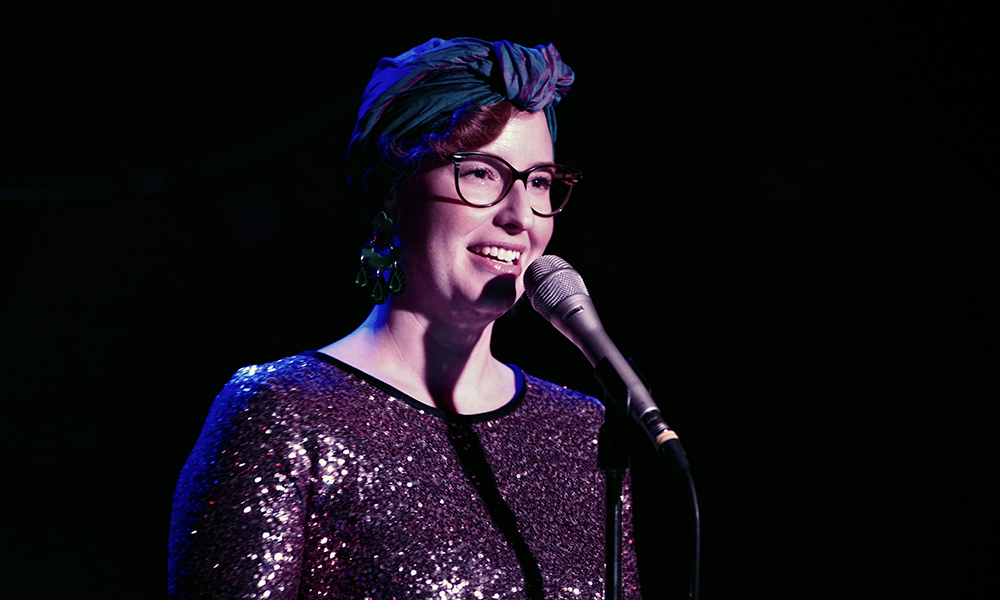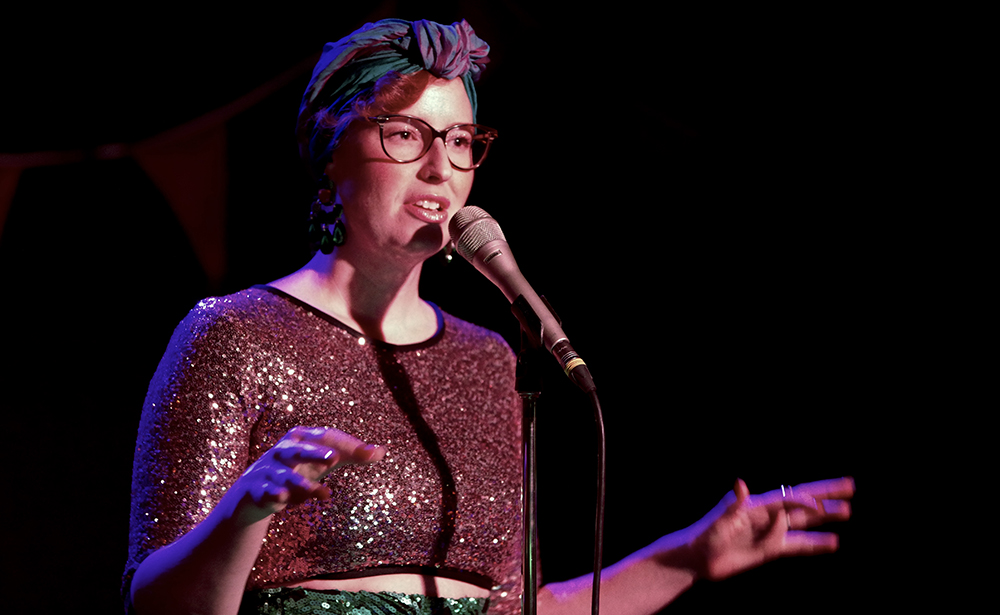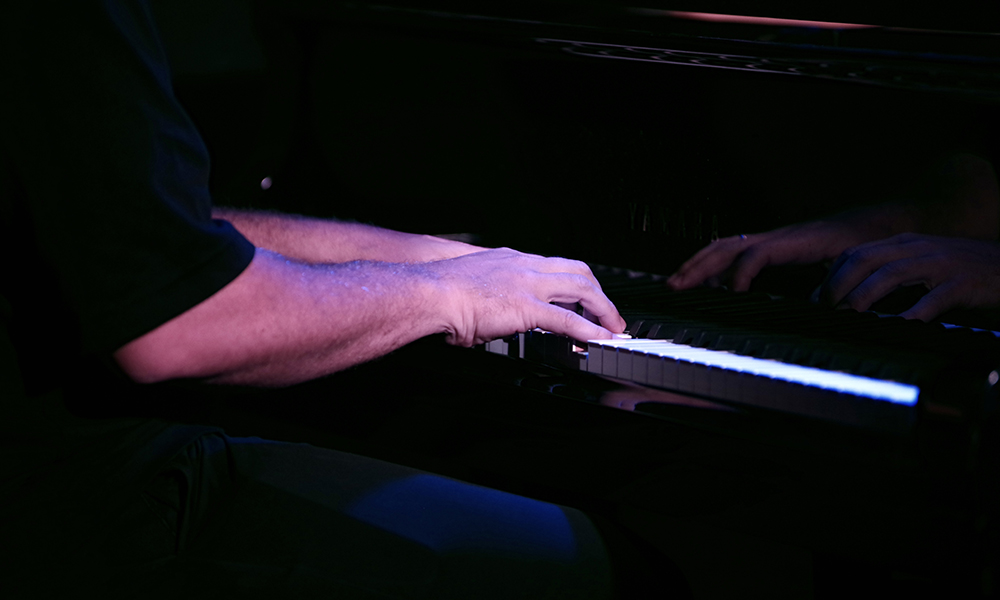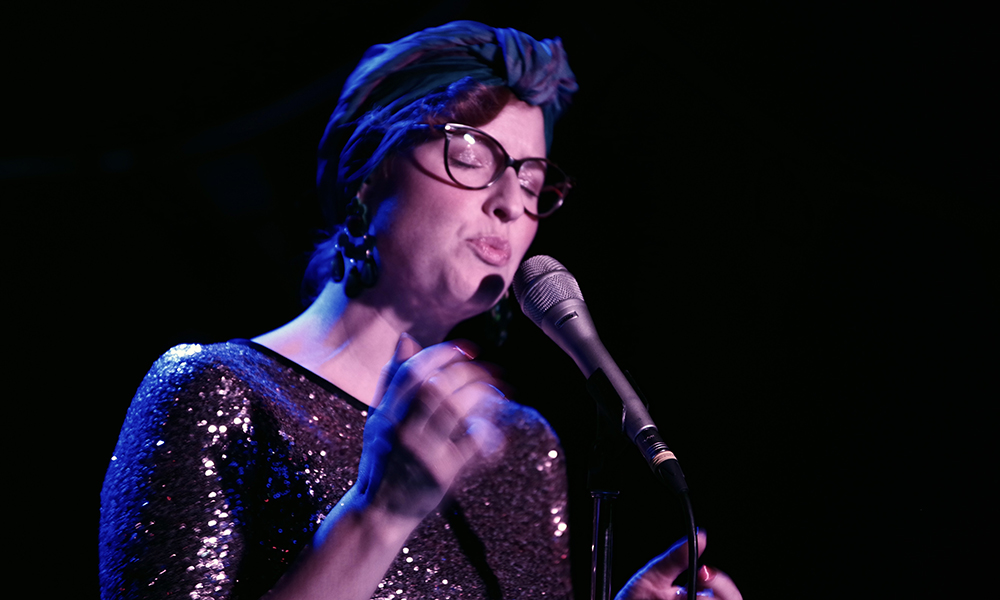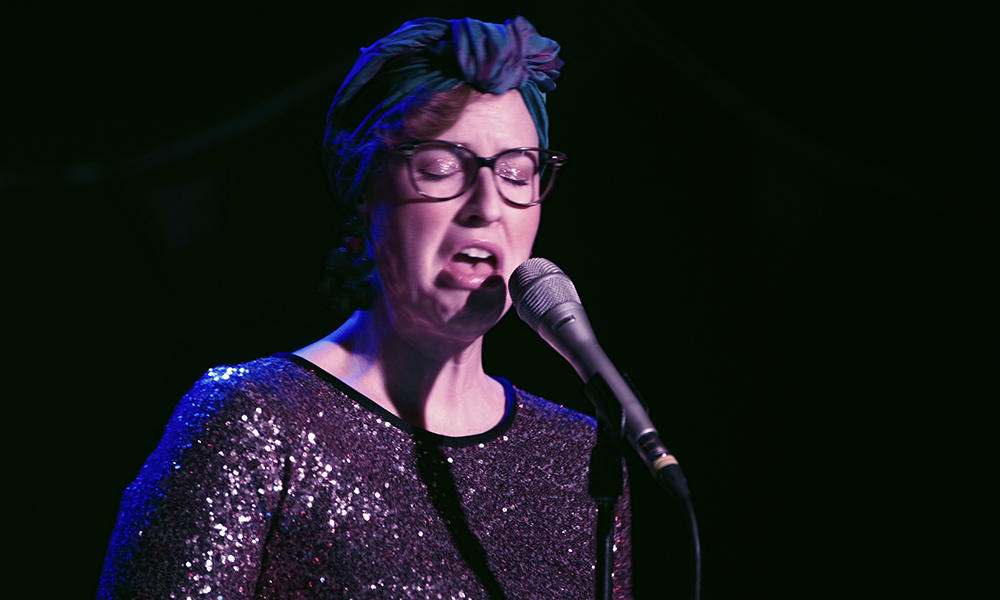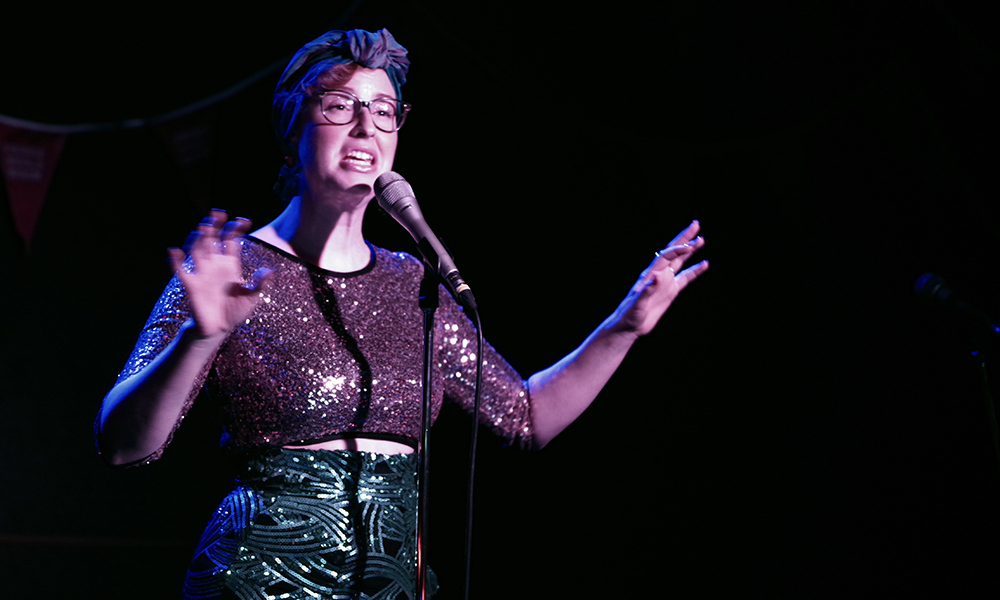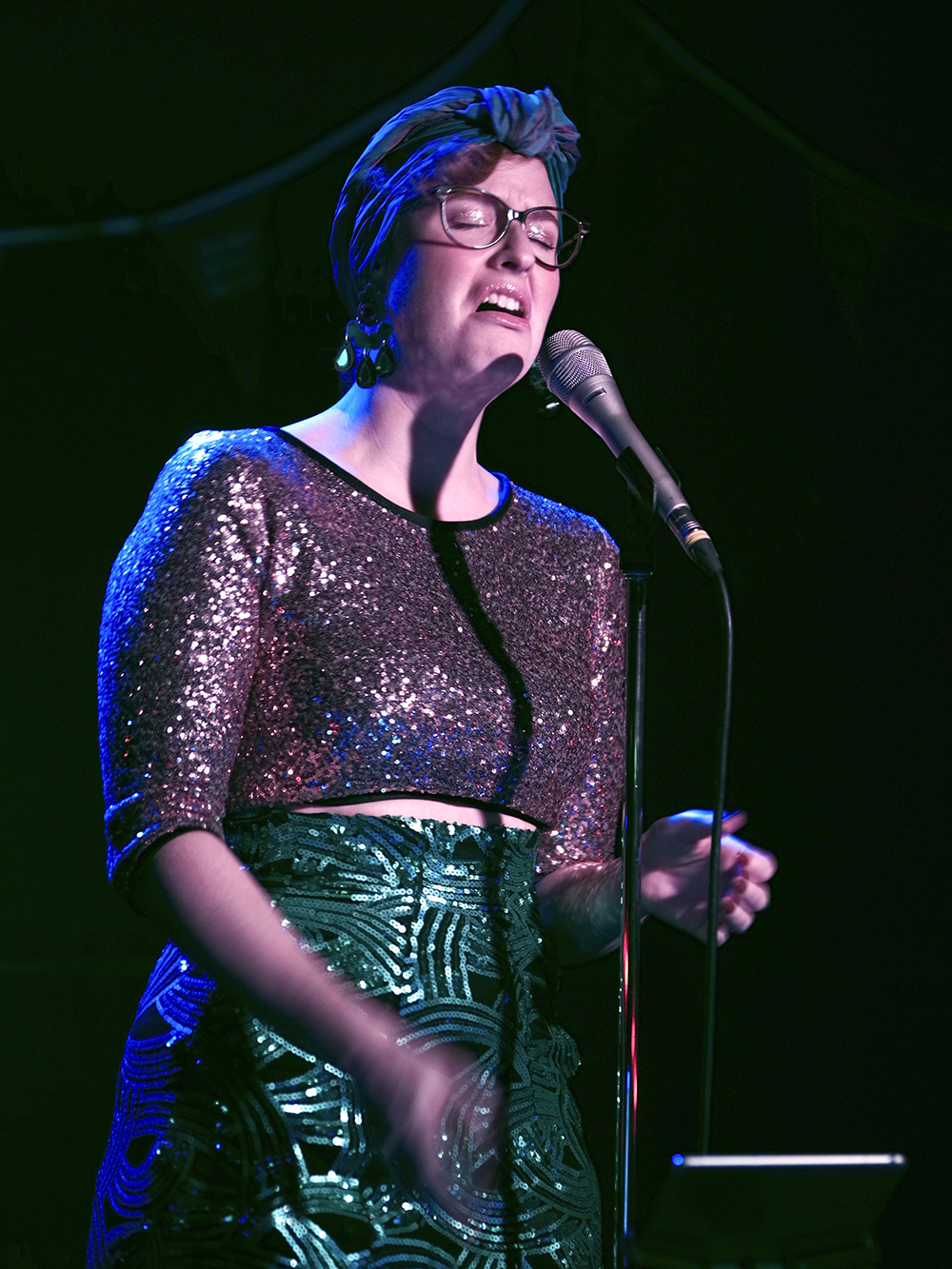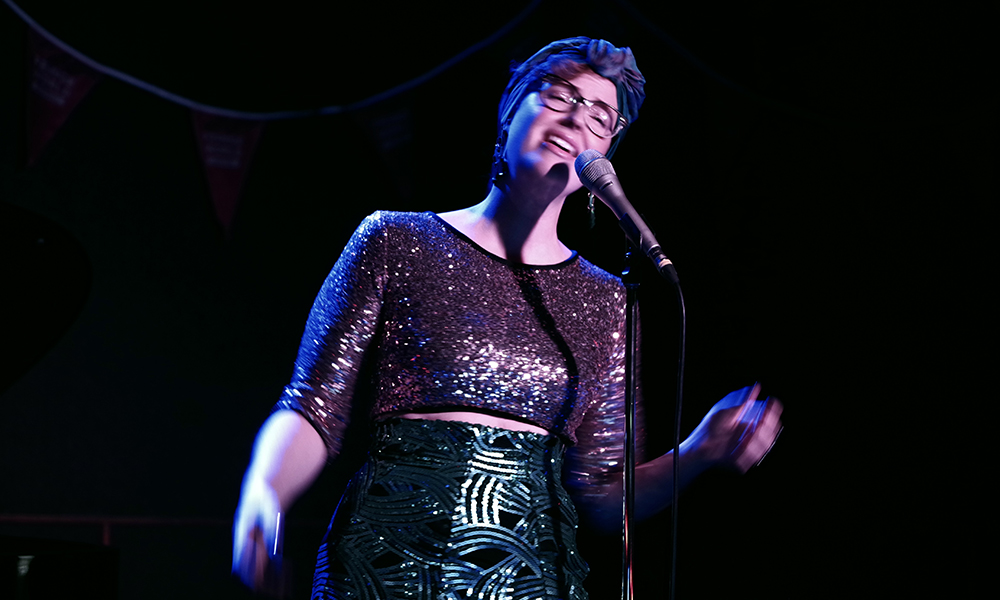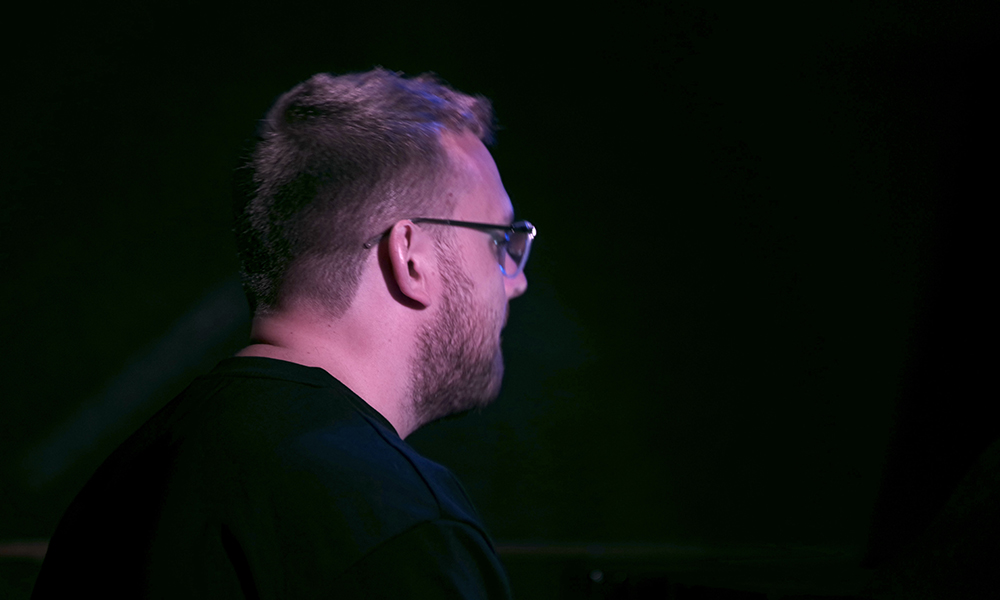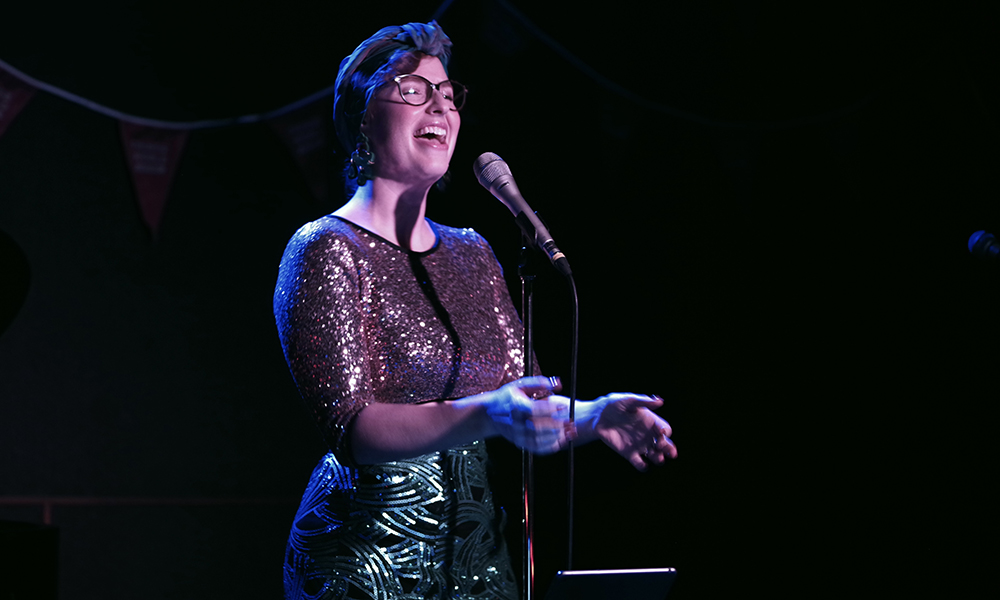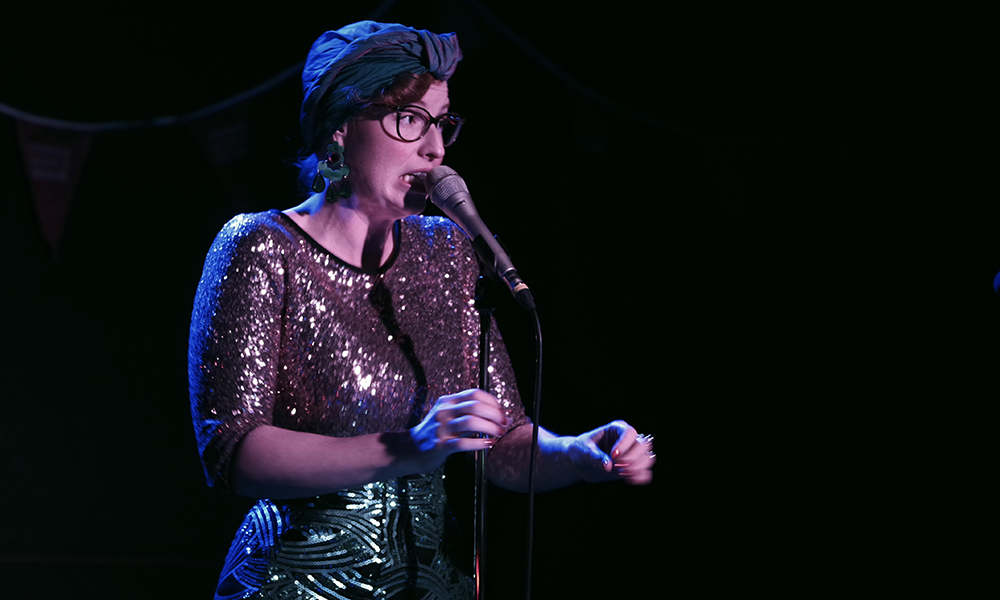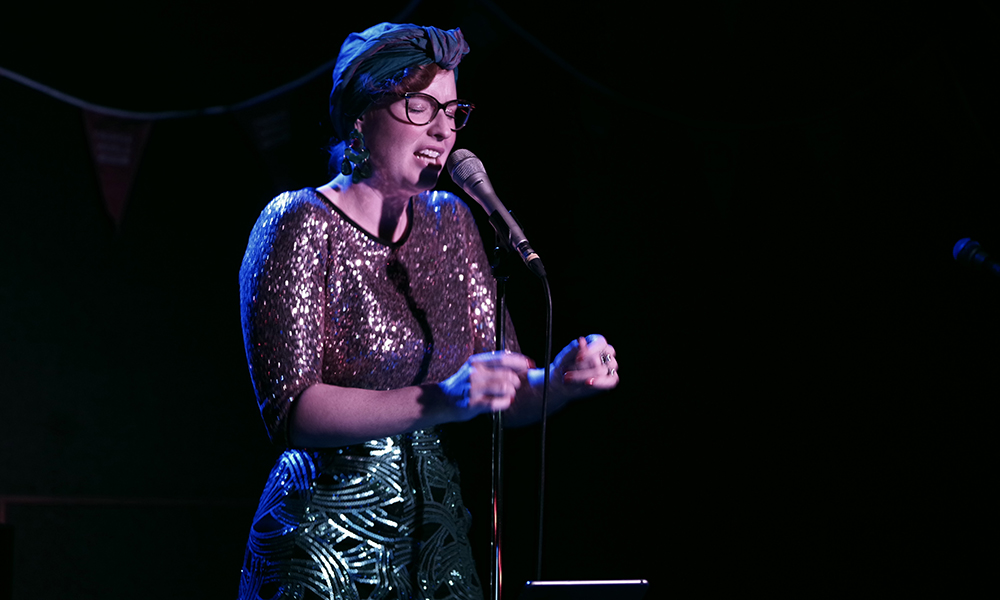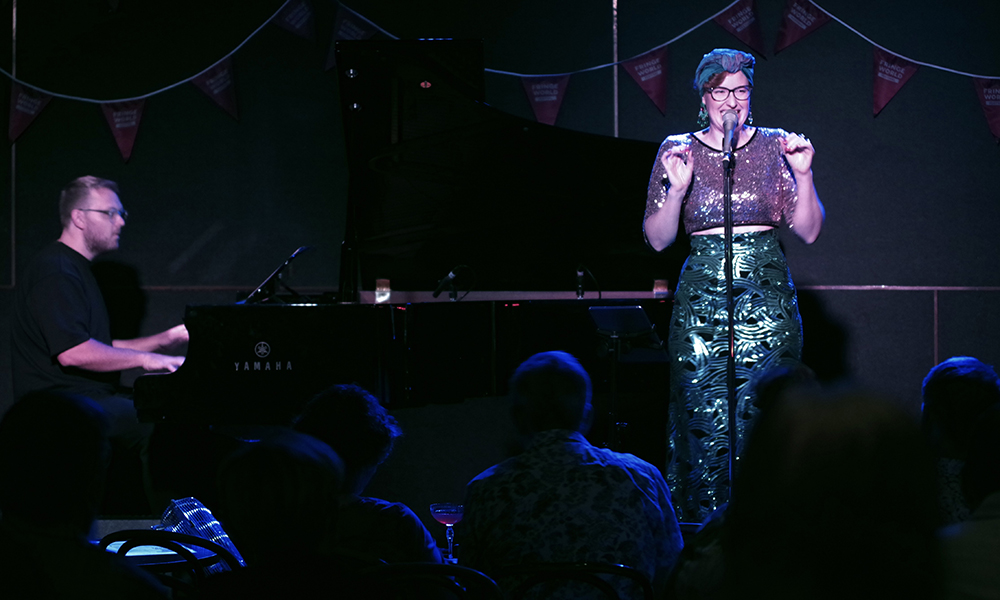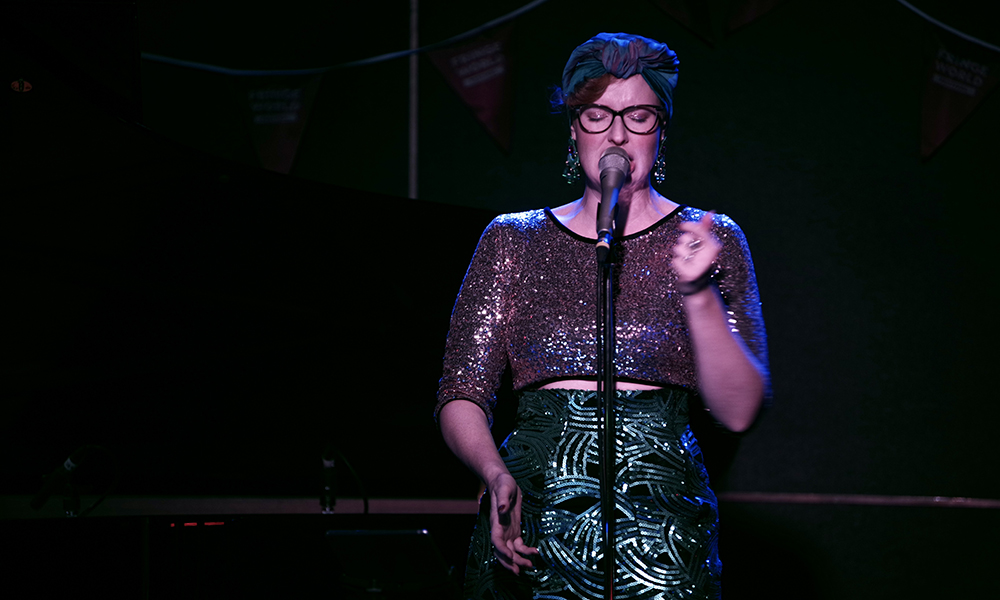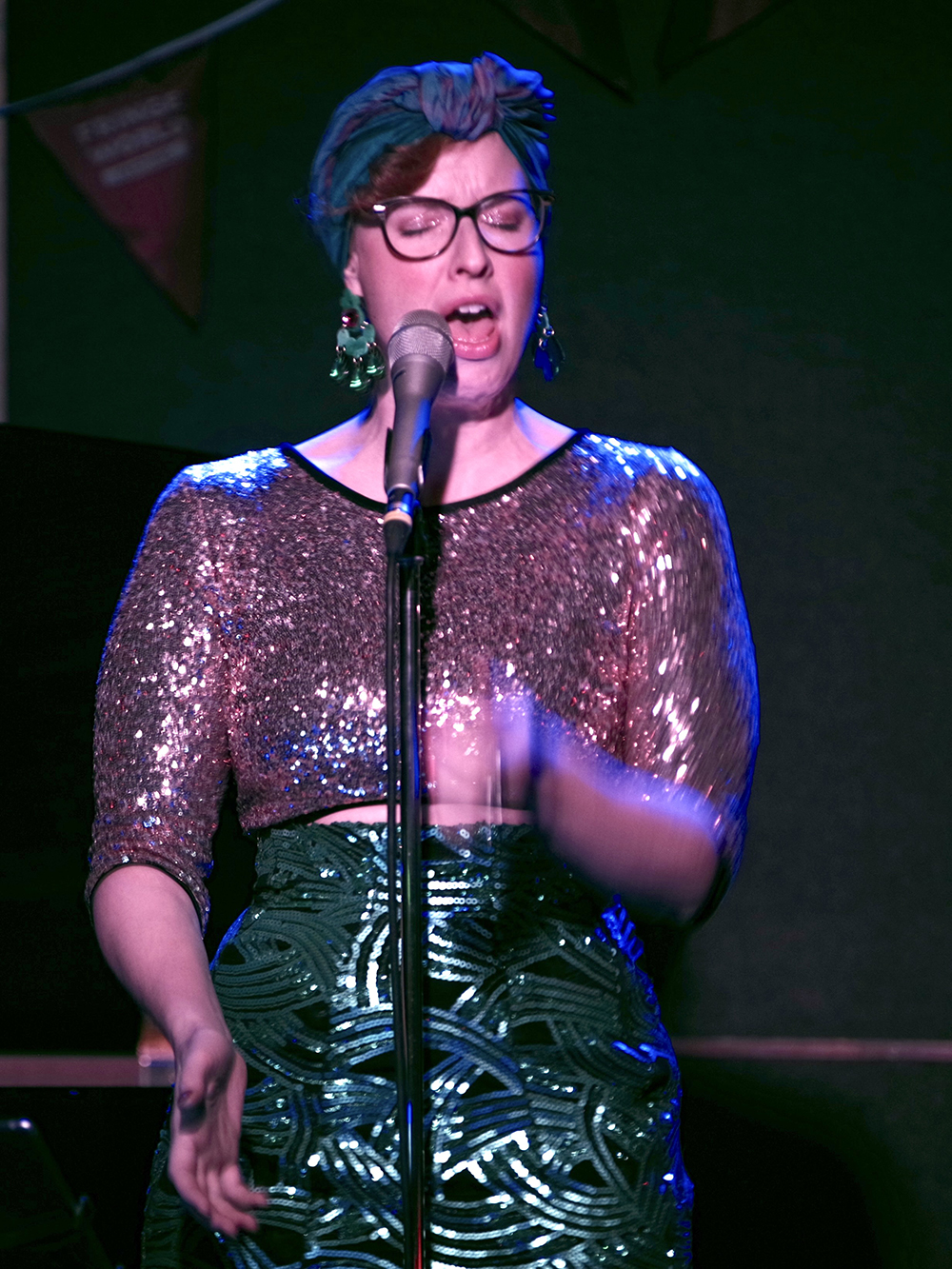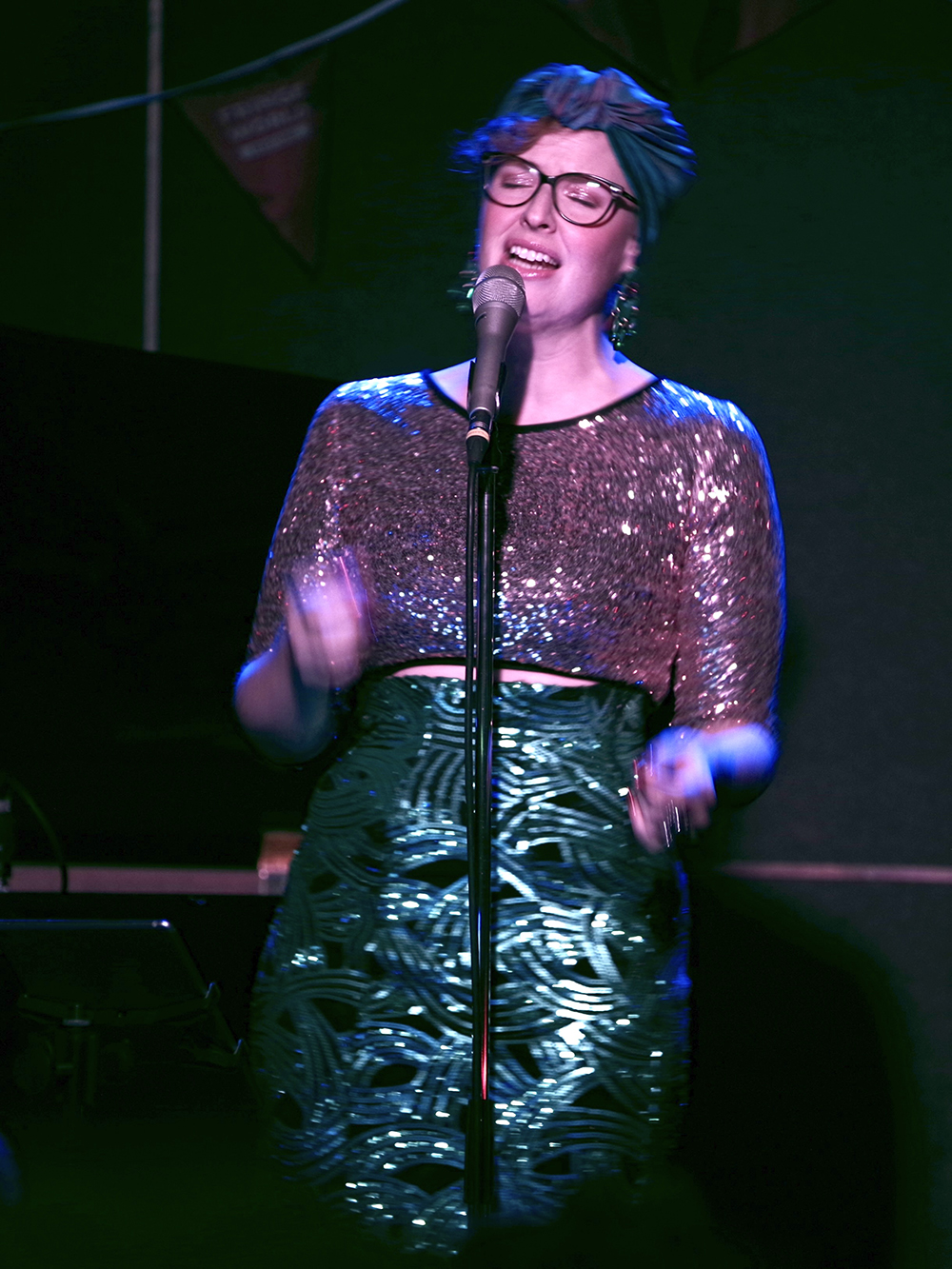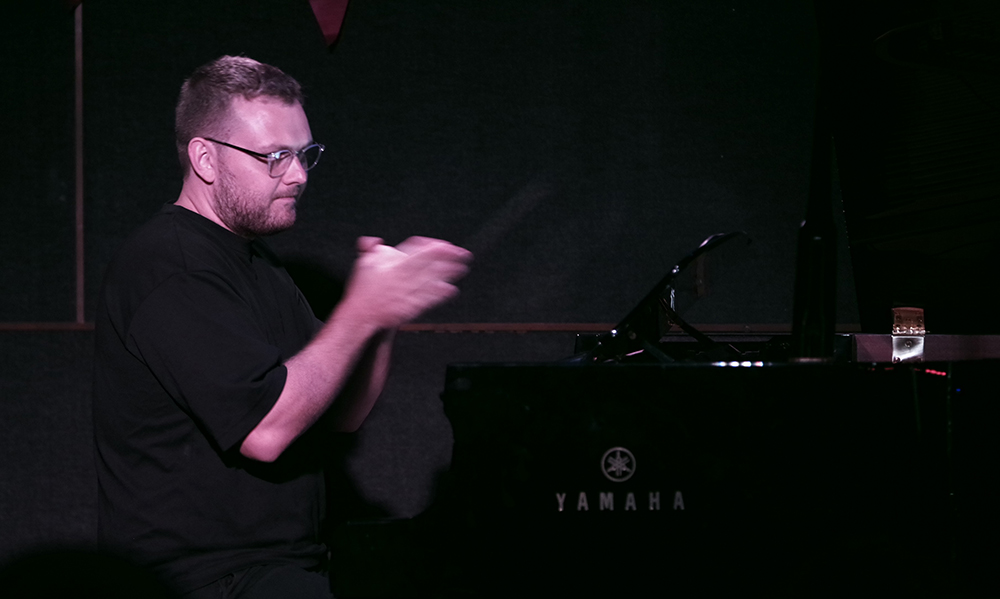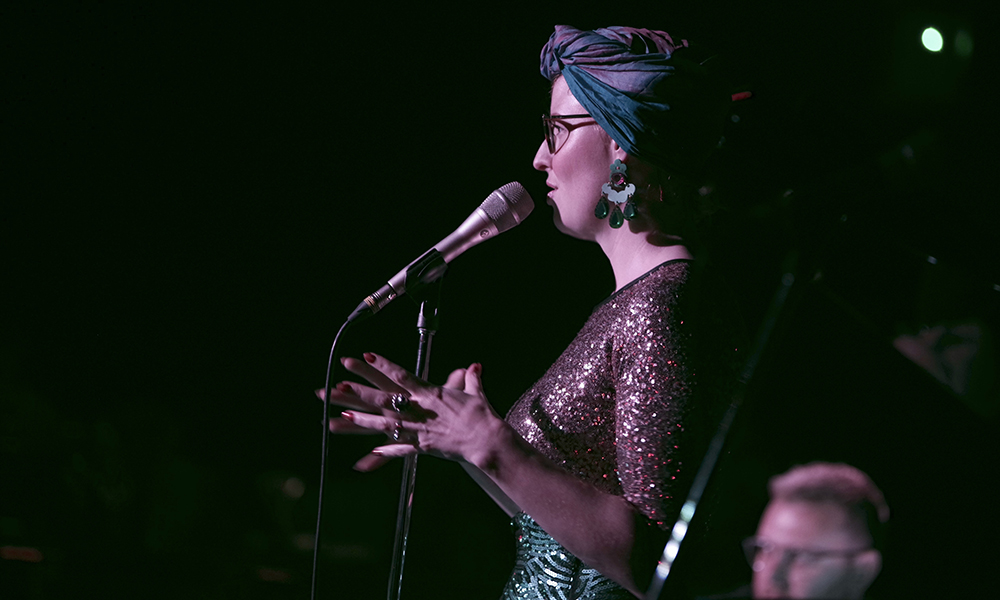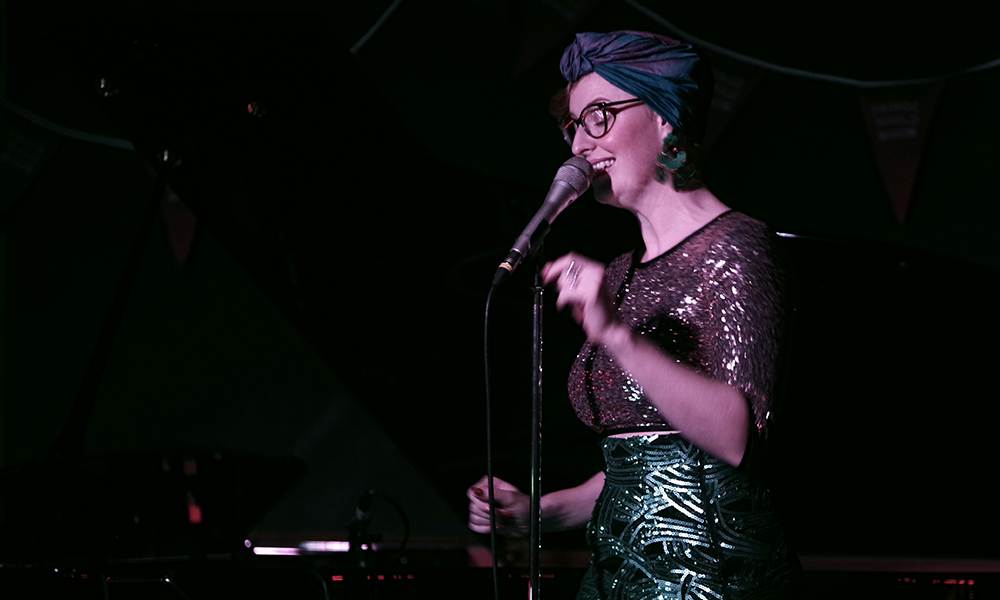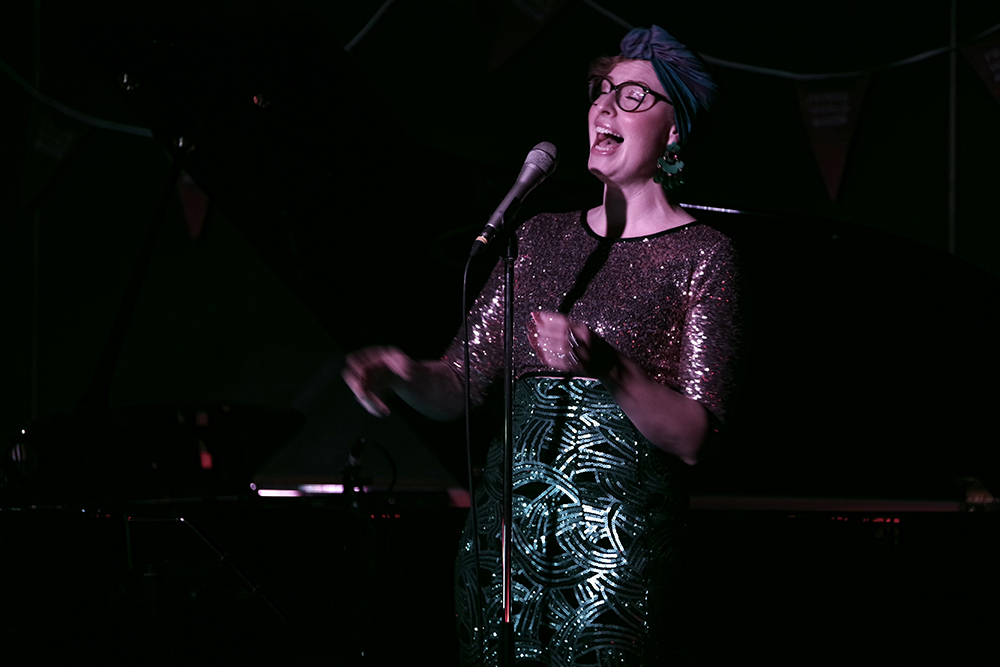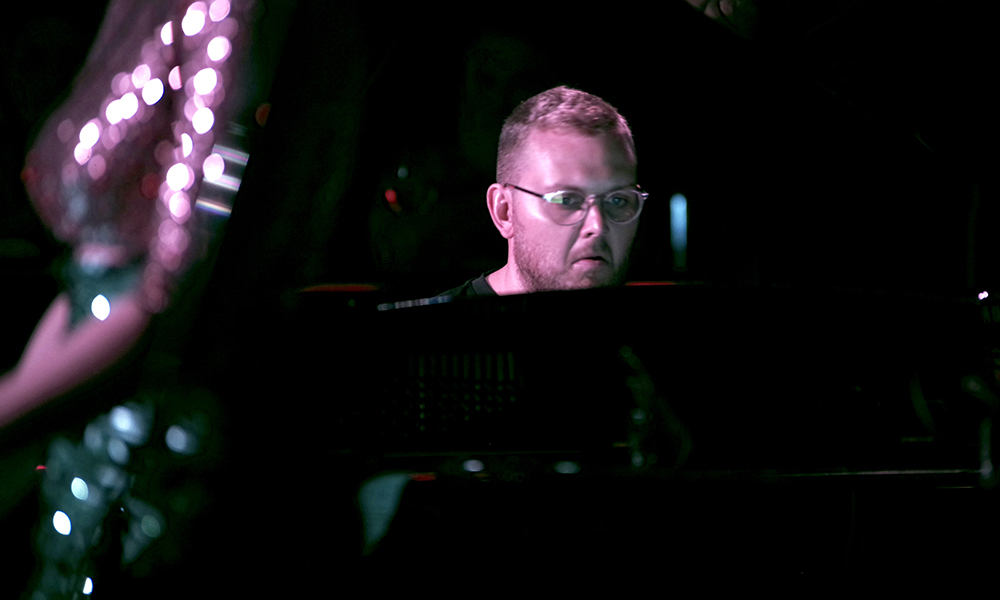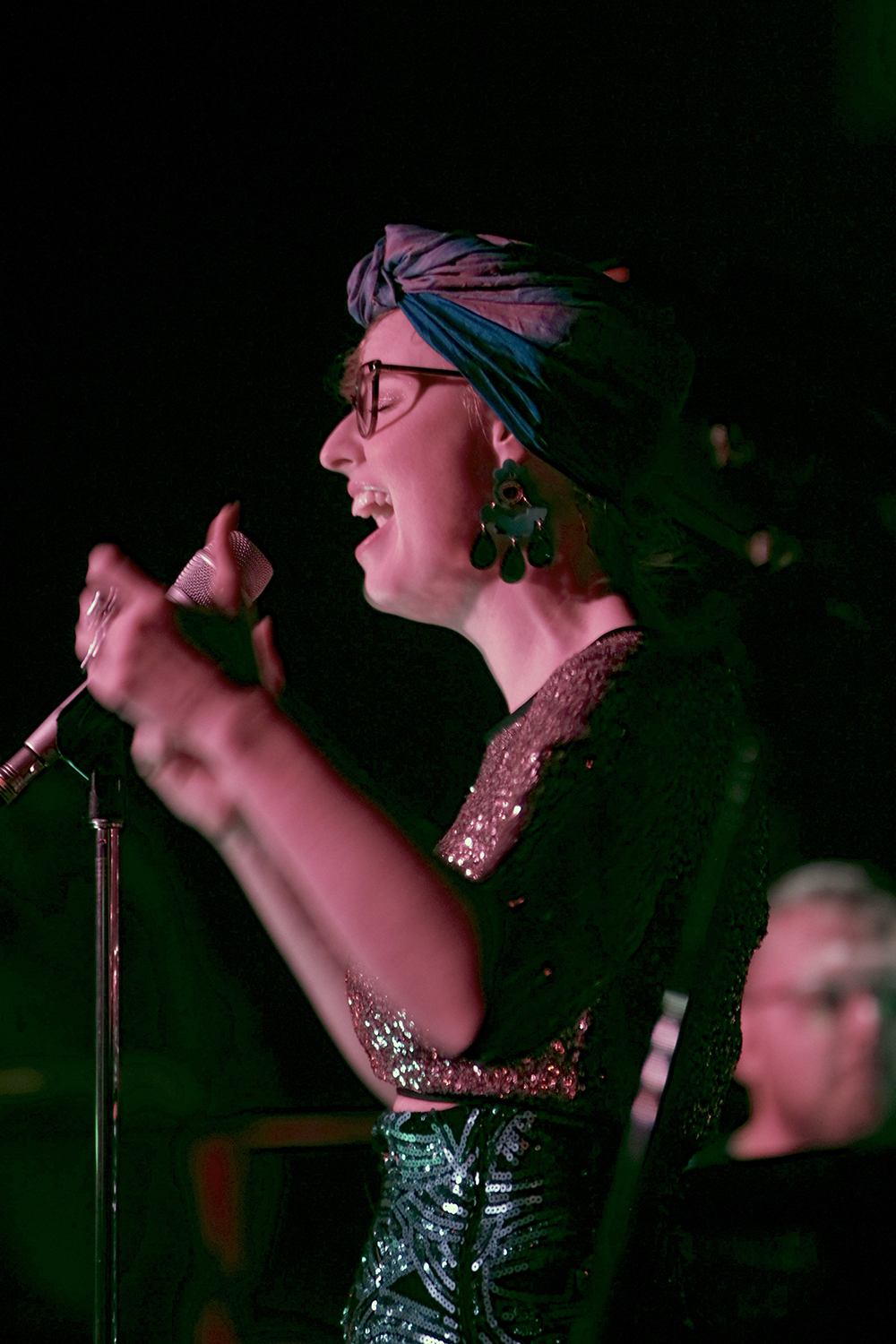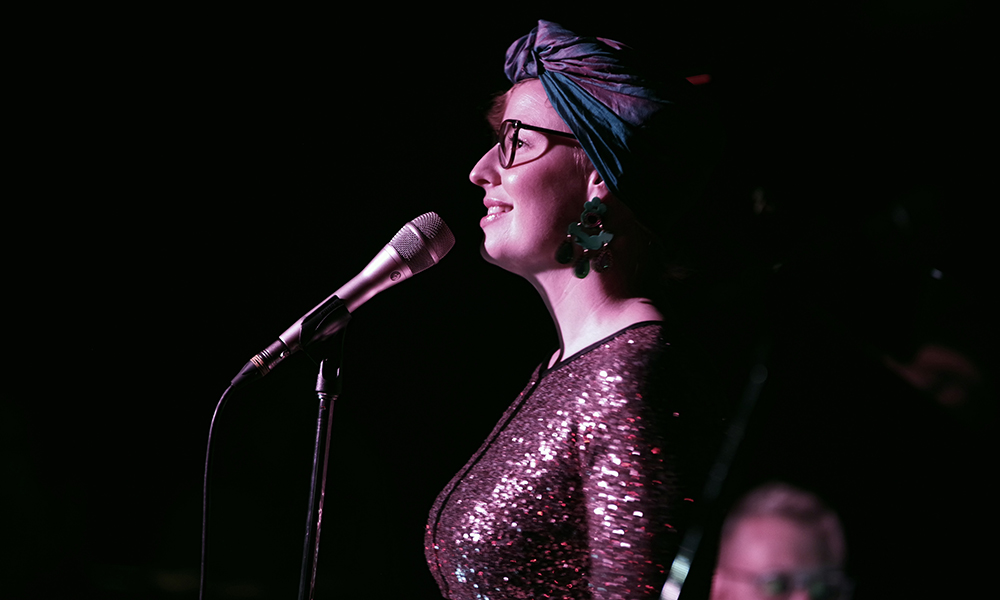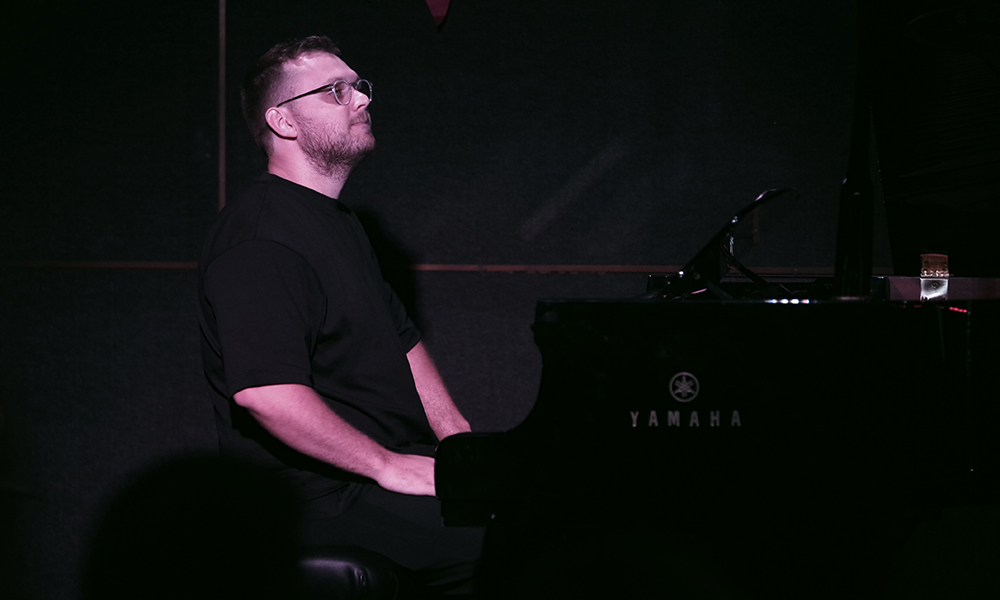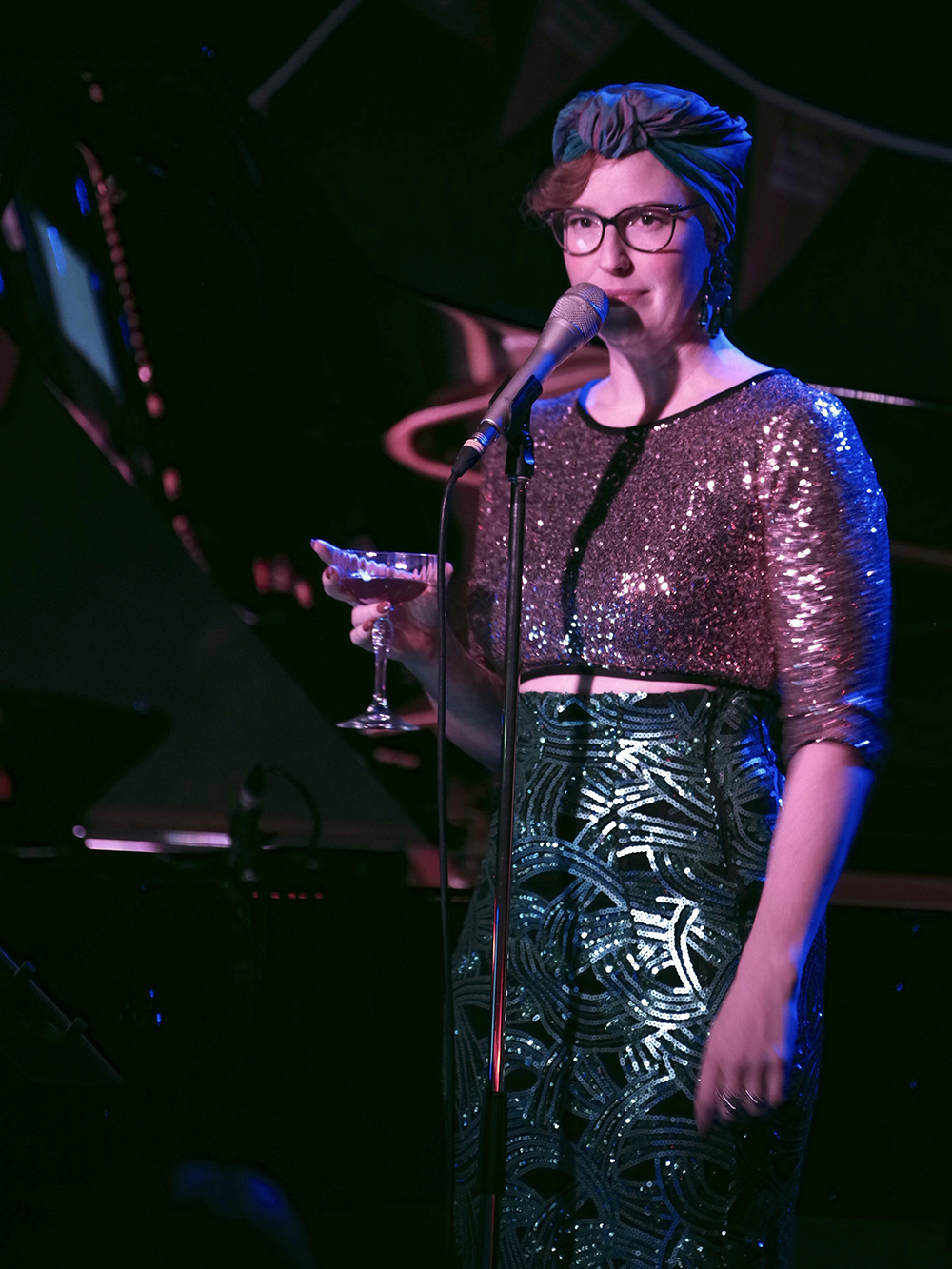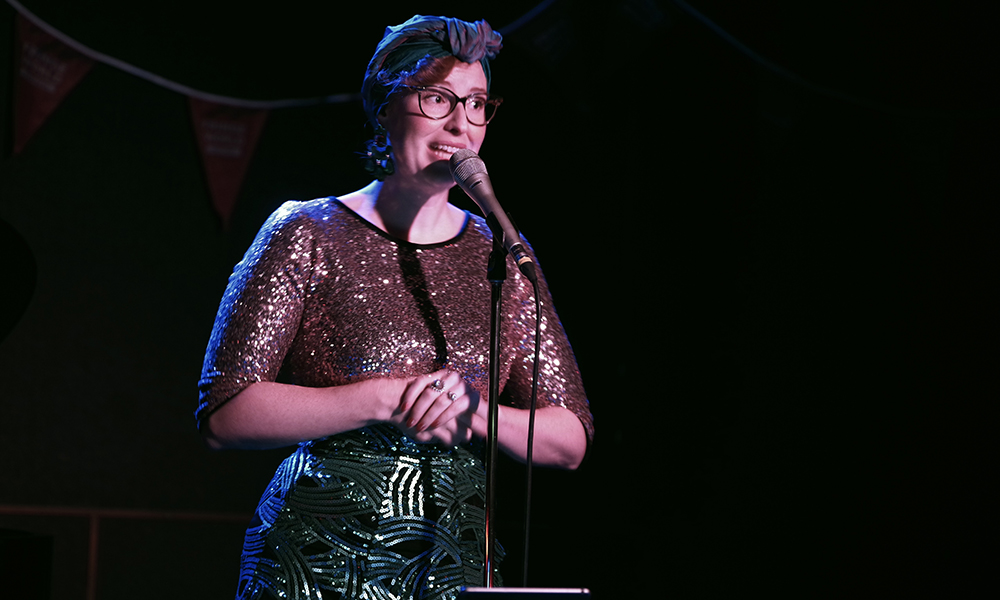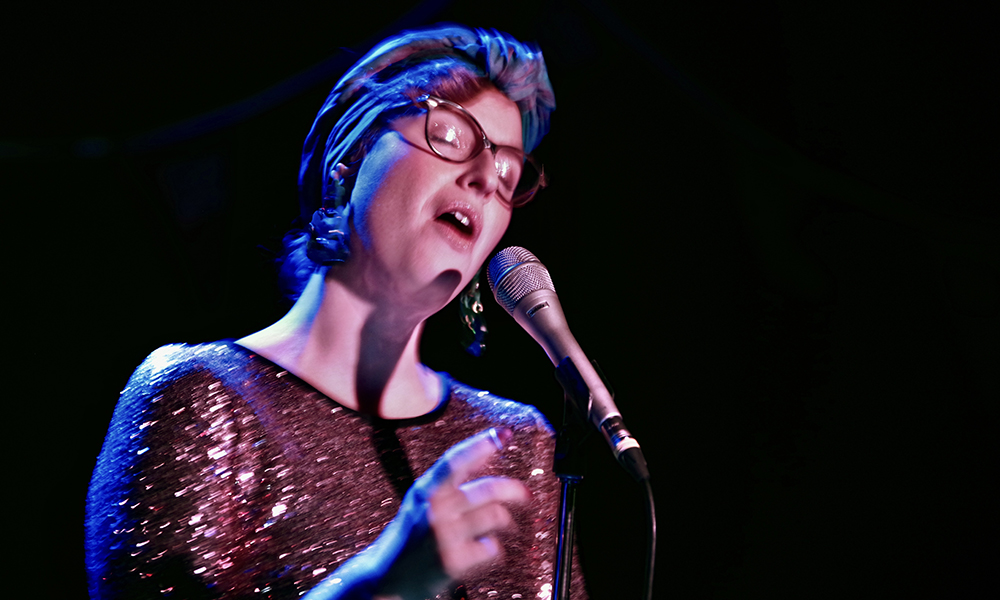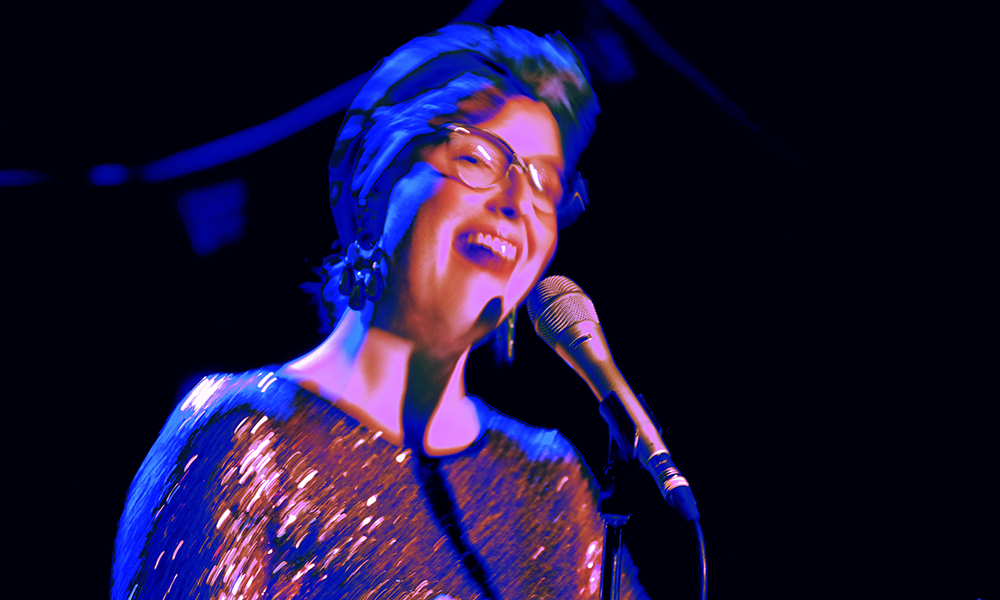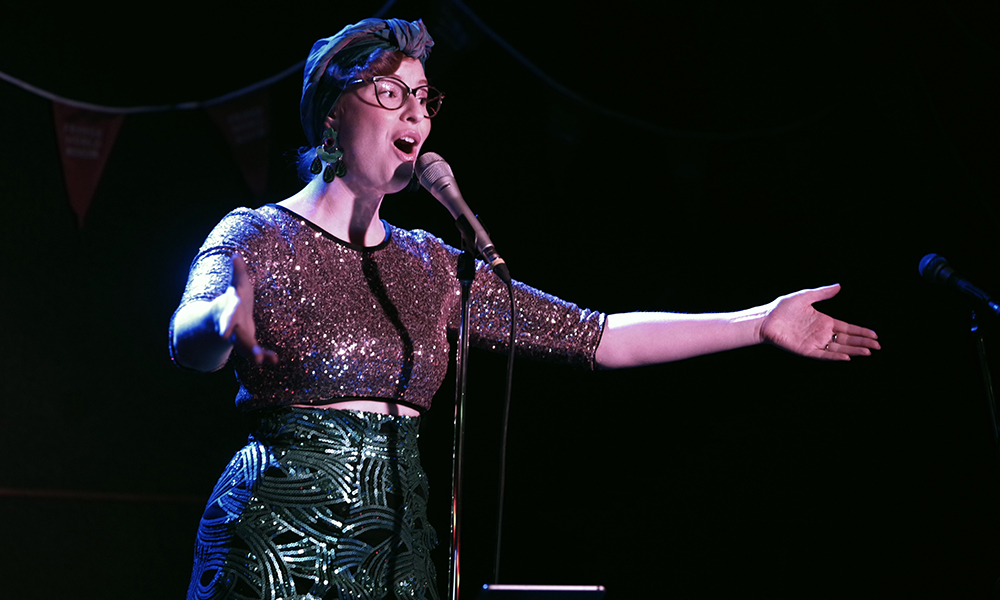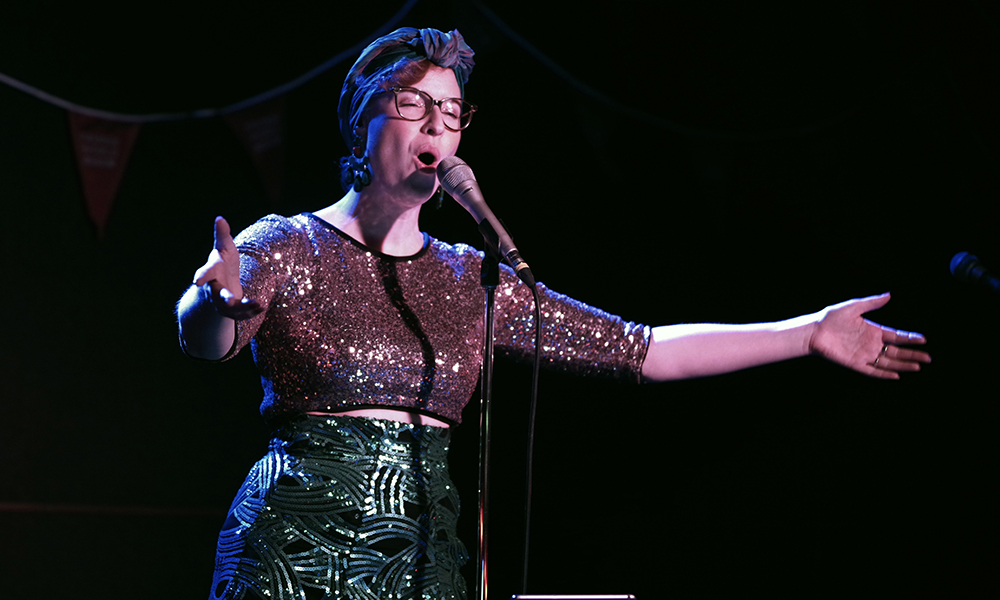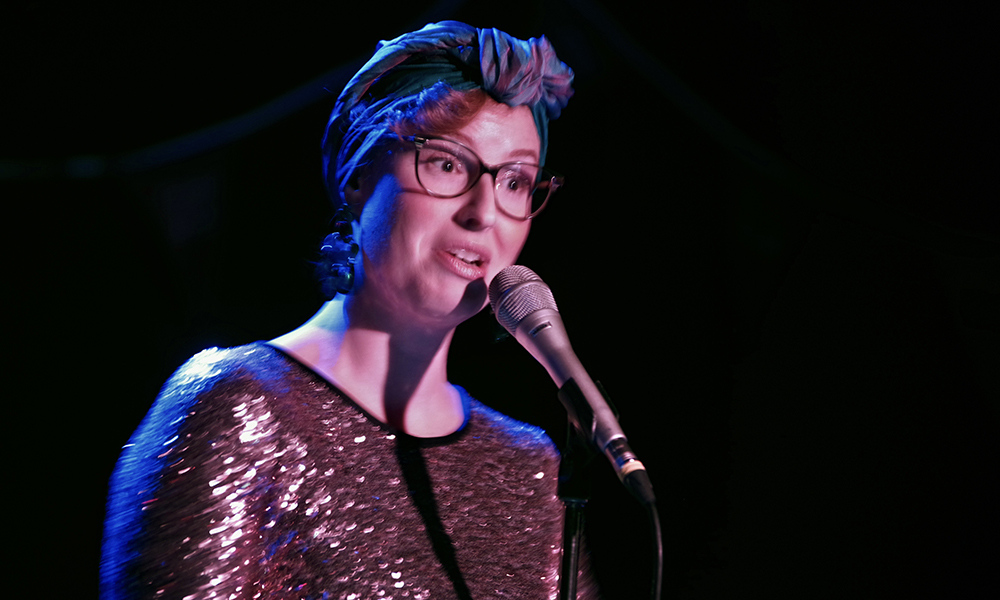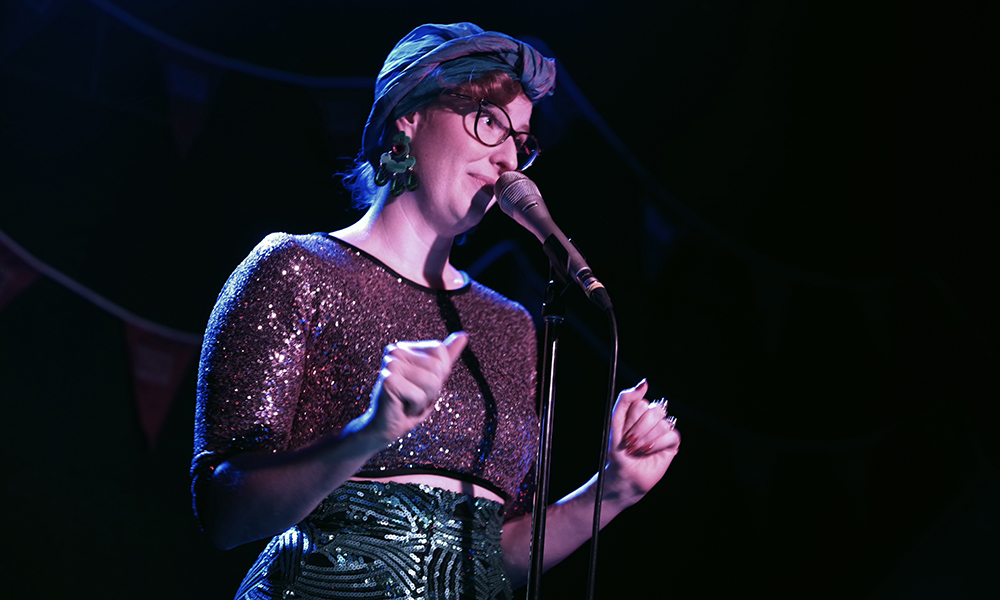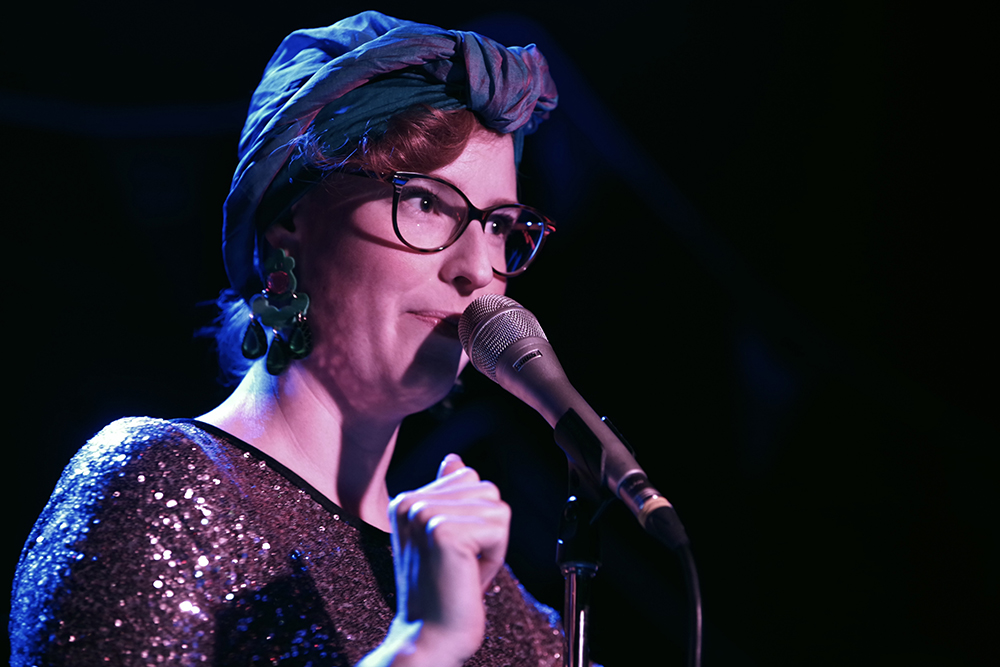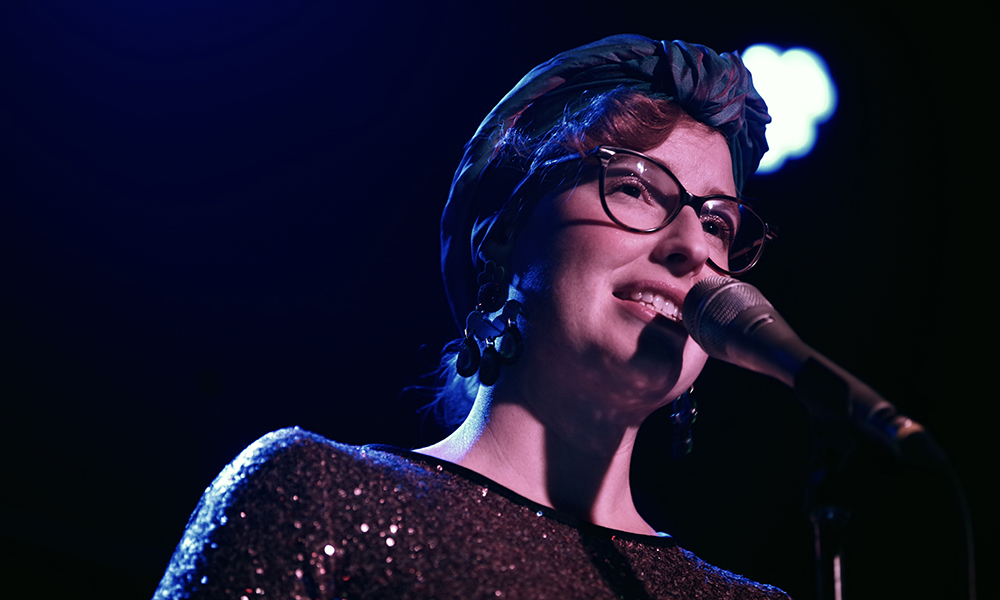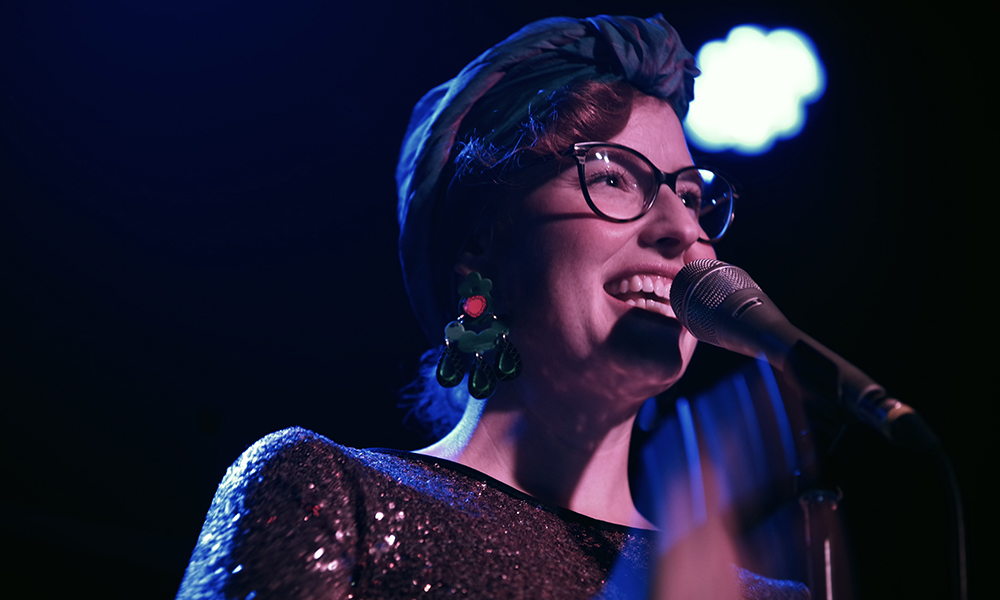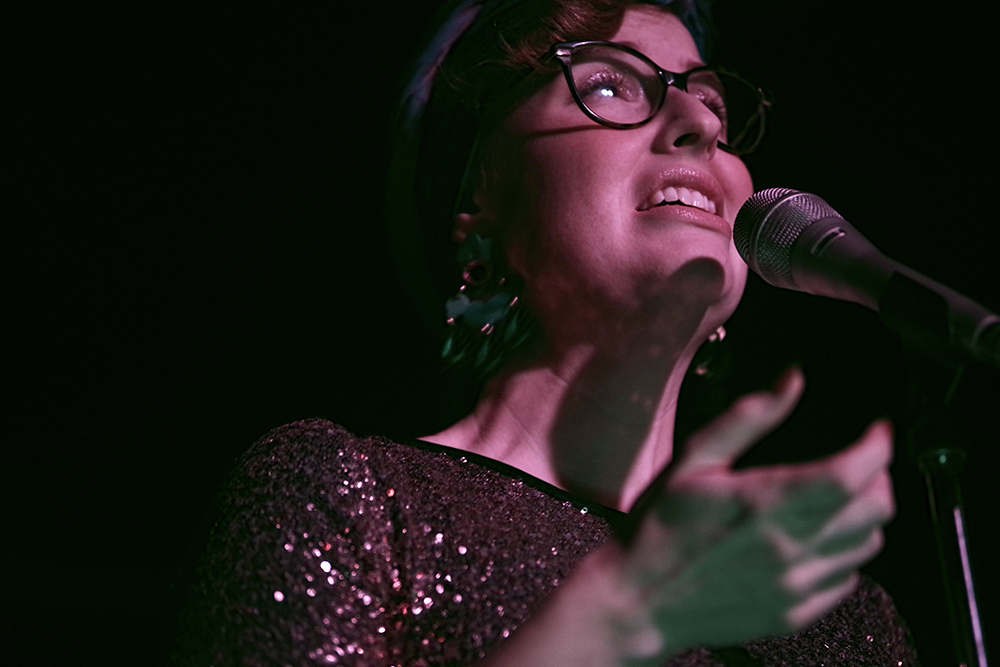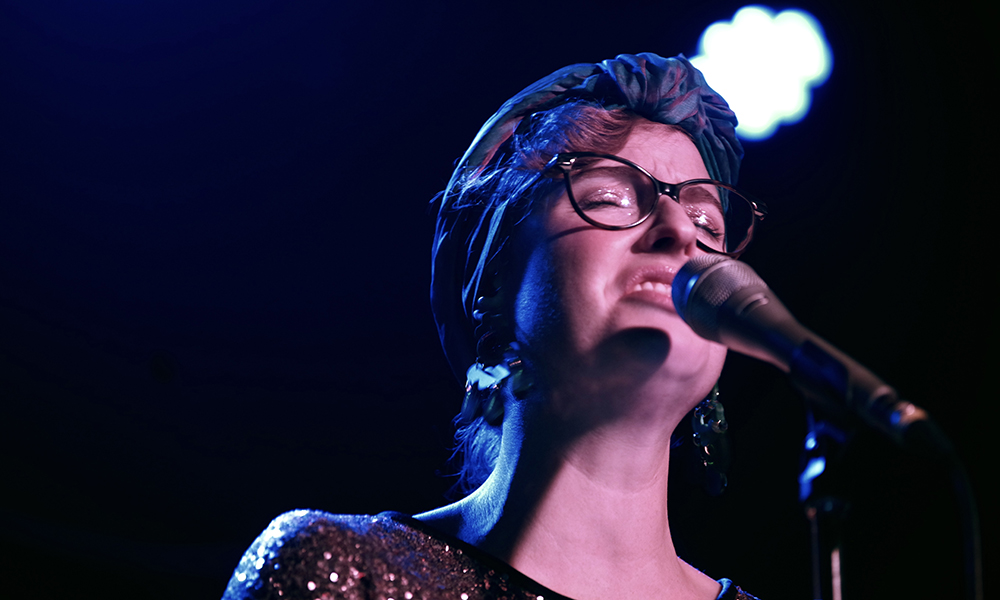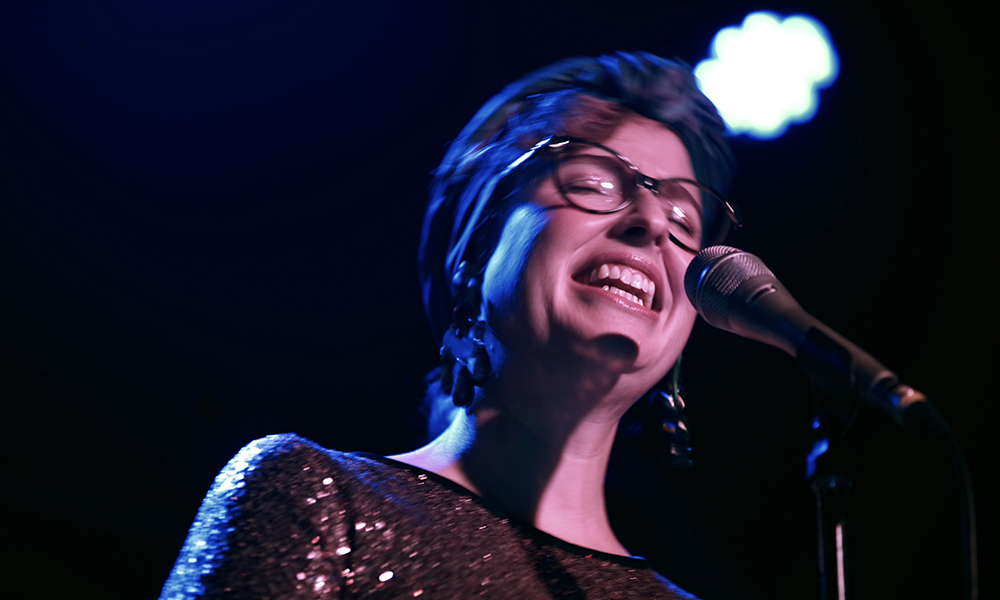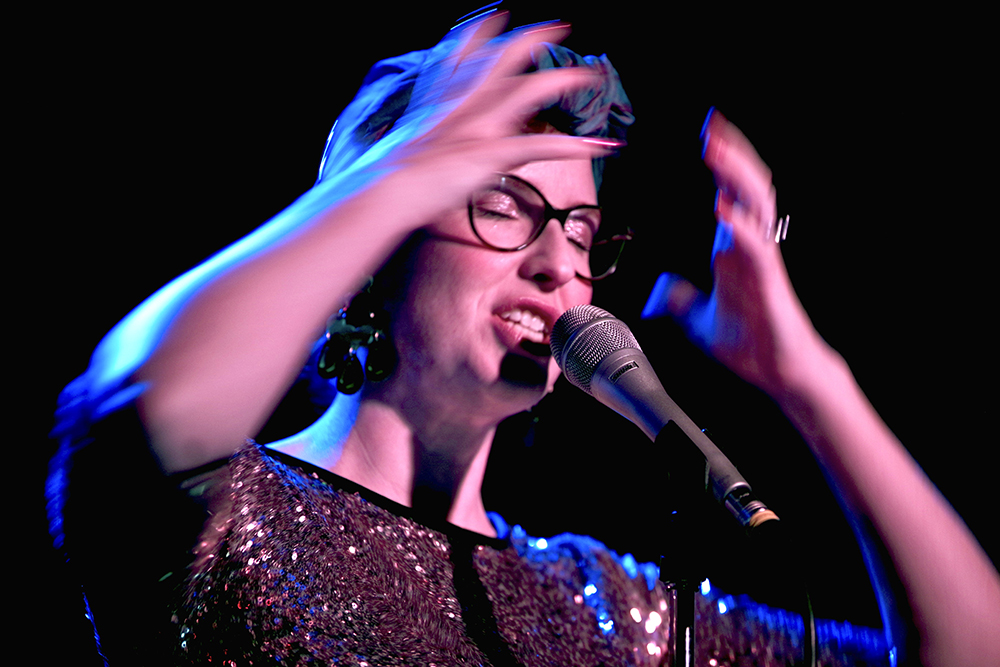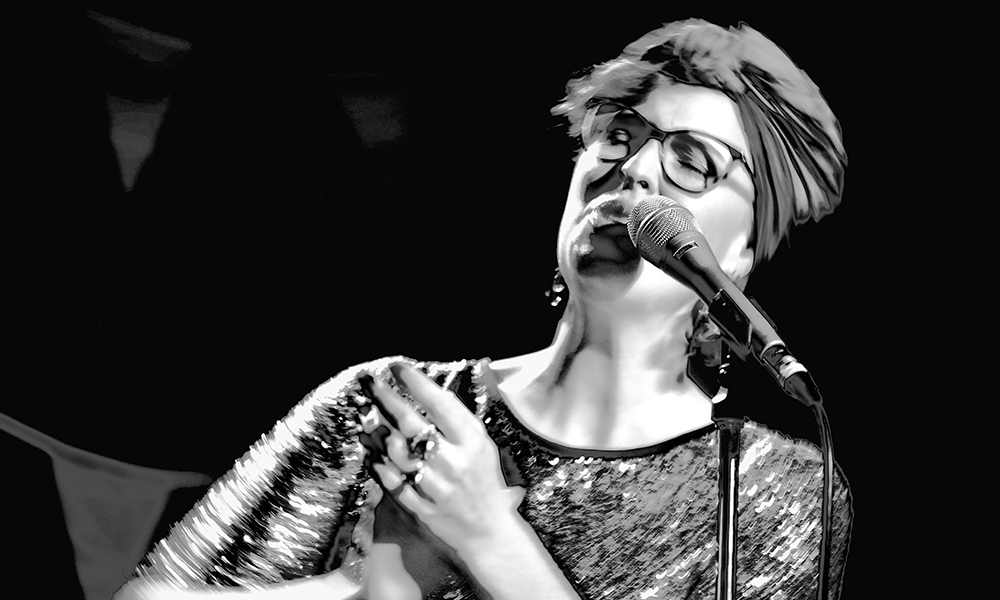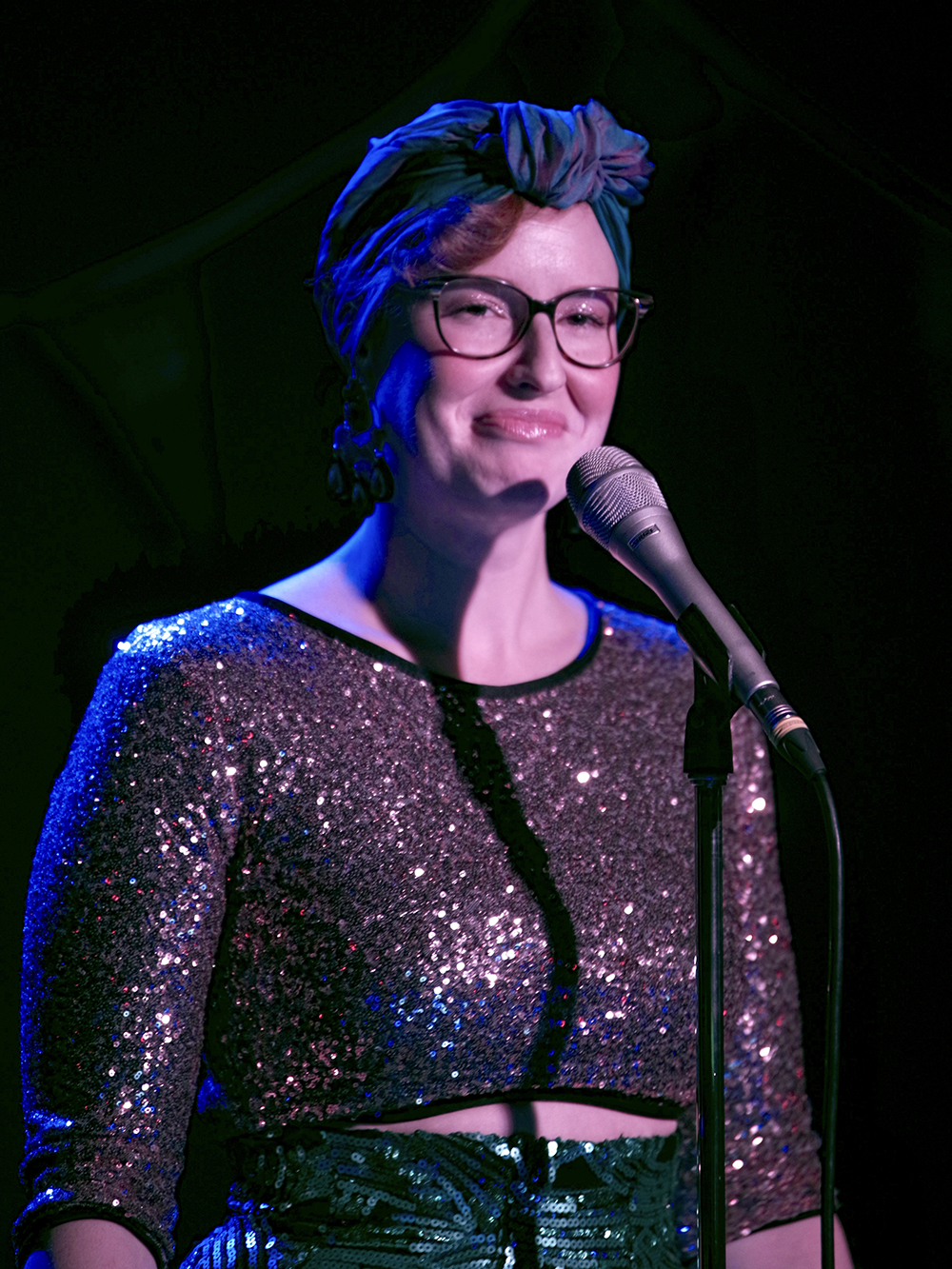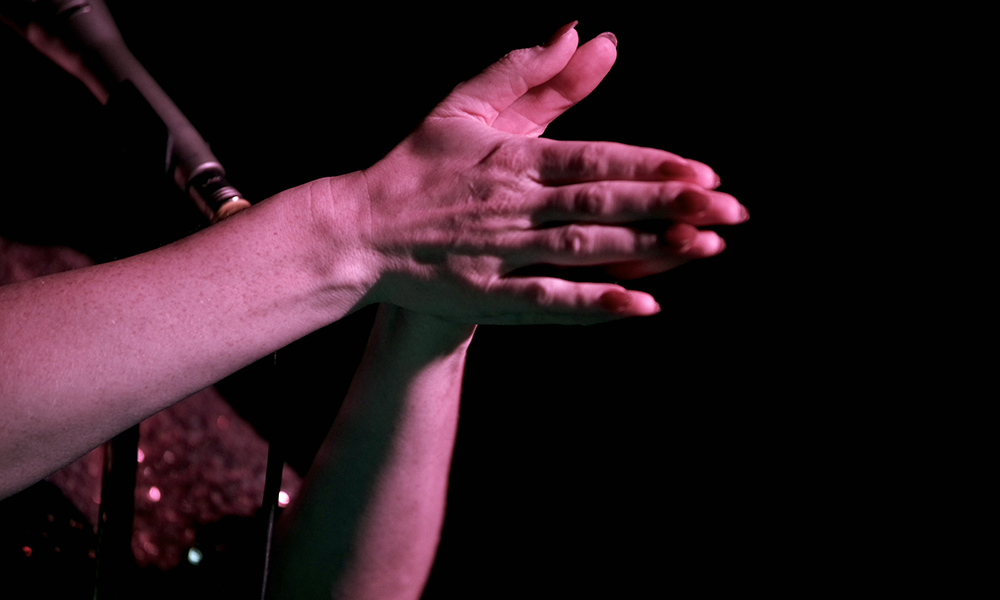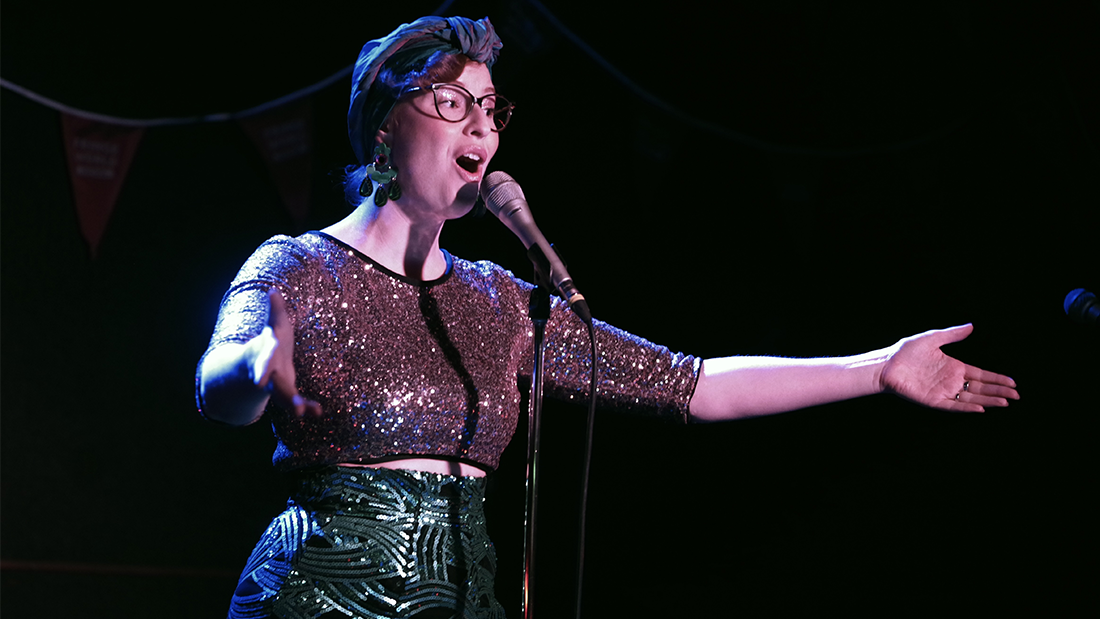
Review: The Gospel Hour with Jessie Gordon and Harry Mitchell at The Ellington Jazz Club
The Gospel Hour with Jessie Gordon and Harry Mitchell at The Ellington Jazz Club
Thursday, February 8, 2024
Jessie Gordon is habitually the hardest-working diva in Fringe World. Some years she’s had up to eight different shows on the go, sometimes dashing from Freo to Northbridge within the hour to make her next gig with yet another band. It’s little wonder that she’s won twenty Fringe World music awards.
This year she’s taking it quietly and only has four shows. Last Thursday at the Ellington Jazz Club, she had two—The Gospel Hour with Harry Mitchell and, an hour or so later, Live Loops Perth Poetry with Scott-Patrick Mitchell, Lisa Collyer and other Perth poets. This pretty well captures Gordon’s range—from songs up to 250 years old to collaboratively creating new work in the moment. Even so, one of her most impressive Fringe World segues was from a sweetly harmonious duet in drag (tuxes) on uke with Libby Hammer of Tiptoe Through the Tulips to, an hour later, a fractious five-piece rock band rendition of a full-on Eminem cover.
The Gospel Hour was a powerful, spare exploration of the roots of Gordon’s musicality: American gospel and spiritual music. (There is a difference between the two, anon.) This is the music Gordon learned sitting on her daddy’s knee, listening to his vast record collection.
A Southern Baptist, her anthropologist father hails from Georgia in the United States. (So that’s where the sass in her accent comes from?) He was raised in the grand old gospel tradition: the music of Mahalia Jackson, Sister Rosetta Tharpe and Dorothy Love Coats. These singers are deep in Jessie Gordon’s soul and, once revealed, prove to be the hidden figure at the heart of her rich, warm and flexible vocal style. (So that’s where her voice comes from?)
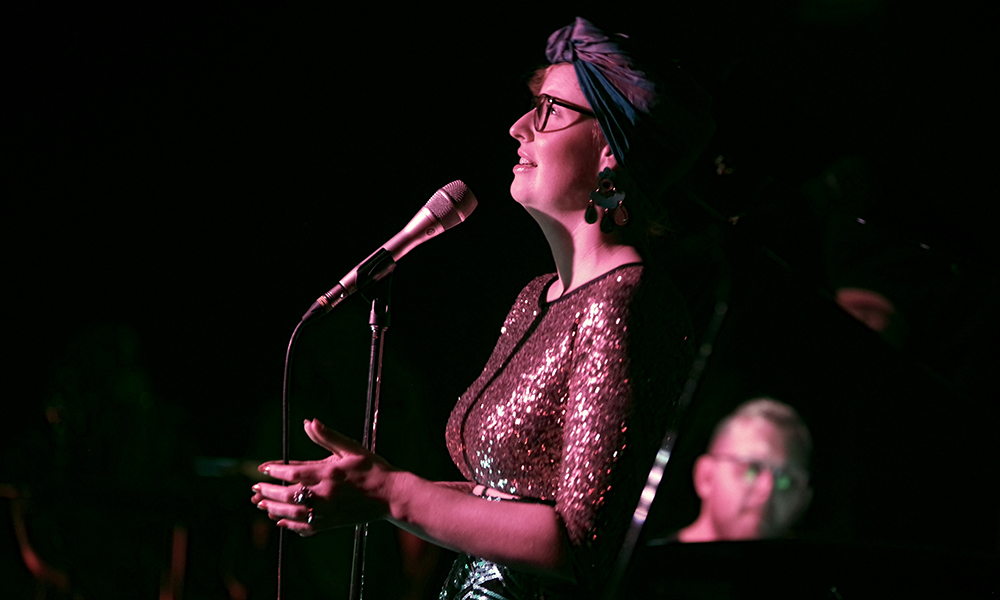
Jessie Gordon
With a not-so-simple but solo piano accompaniment from Harry Mitchell, Gordon worked her way through a good dozen classic gospel tunes. As well as Jackson, Tharpe and Love Coats, there were tunes by Duke Ellington (Come Sunday), Tin Pan Alley’s Beasley Smith and Haven Gillespie (That Lucky Old Sun) as interpreted by Ray Charles, and John Newton (Amazing Grace). The last dates back to the 1770s and is rated as the most recorded song of all time. She fleshed out the set list with a nineteenth-century hymn (Softly and Tenderly) and a pre-civil war traditional classic (Down by the Riverside) that she enticed the audience to sing along to.
Many of the songs were achingly familiar; many weren’t. Gordon delivered them all with the full force her deep and powerful voice could muster. Mitchell’s understated yet masterly grand piano was the perfect foil—just enough to allow her to truly soar. Less is more. From the moment she sparkled her way onto the stage in her shimmering sequinned skirt through to the last notes of Rosetta Tharpe’s Up Above My Head, she held the audience’s complete attention.
A natural raconteur, Gordon is the originator of the classic Fringe World concert formula. She was the first to present themed shows in which a disparate group of songs are collected into a topical whole. Some of her earliest shows—Dirty Jazz, Dirty Blues—were a little risqué, which was a surprise as she always presents herself as such a wholesome woman. But that’s by the by. The formula has been emulated by the other key Fringe World jazz presenters, especially Adam Hall and Catherine Summers, so that it is now the festival’s norm. As has been said elsewhere, it is a clever way to turn a gig into a show—to present an array of otherwise disparate material as a cohesive unit and give the audience a hook to hang it on.
Gordon is particularly adept at this due to her flare for stories and the depth of her understanding of the songs. She always has something fascinating to say, either about the composer or the composition. Significantly, she then fleshes this out with a personal account of her engagement with the songs. By sharing her genuine love and respect for the material, she delights the audience and enhances their appreciation of where the show comes from.
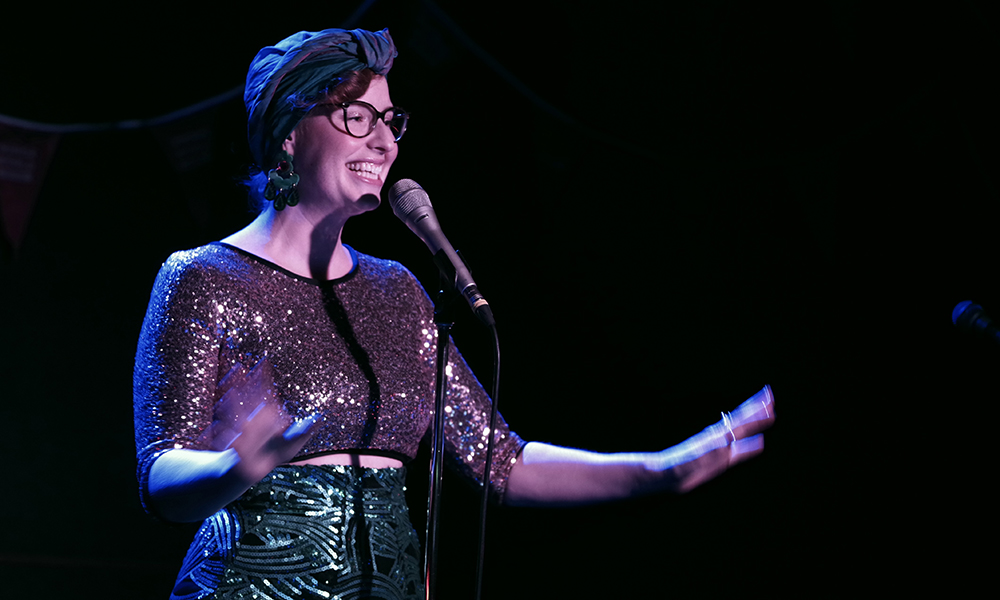
Jessie Gordon
Her stories in the Gospel Hour about Jackson, Tharpe, Love Coats and Newton sat well within this tradition and were insightful, though at times tragic. Sister Loretta Tharpe is a case-in-point.
Renowned for her electric guitar playing, she took to the instrument in the 1930s, a good fifteen or twenty years ahead of Chuck Berry, and developed many of the licks and rhythms that we associate with this later music. In this, she is known as ‘the first soul sister’ and ‘the Godmother of rocknroll’. Guitar gods Eric Clapton and Keith Richards busted a gut to catch her shows when she toured England with Muddy Waters in 1964 and cite her as a prominent influence. The tragedy is that she was often overlooked in favour of the blokes who came later. Worse, some of her songs were ripped off by others—just listen to her track, This Train, next to Little Walter’s My Girl.
To pick some highlights from the show: the gorgeous and sweet, aptly named Softly and Tenderly that Gordon first heard through the Garrison Keillor version, and her spirited rendition of Rosetta Tharpe’s 99½ Won’t Do. (Tragically, Tharpe didn’t make the 100 she craved and died in 1973 at age 58.)
Gordon has spent much of her singing career trying to emulate the power of Dorothy Love Coates' cover of this Tharpe song. Last week, she may have got there—she fairly belted it out. By the end, she sang so hard that her head scarf came loose. This was surprising, as she always looks so fresh on stage—her smile is so sparkly and her costumes are impeccable. This incident prompted her to tell the story of Mahalia Jackson coming on stage immaculately dressed and then being totally dishevelled by the end of the first number.
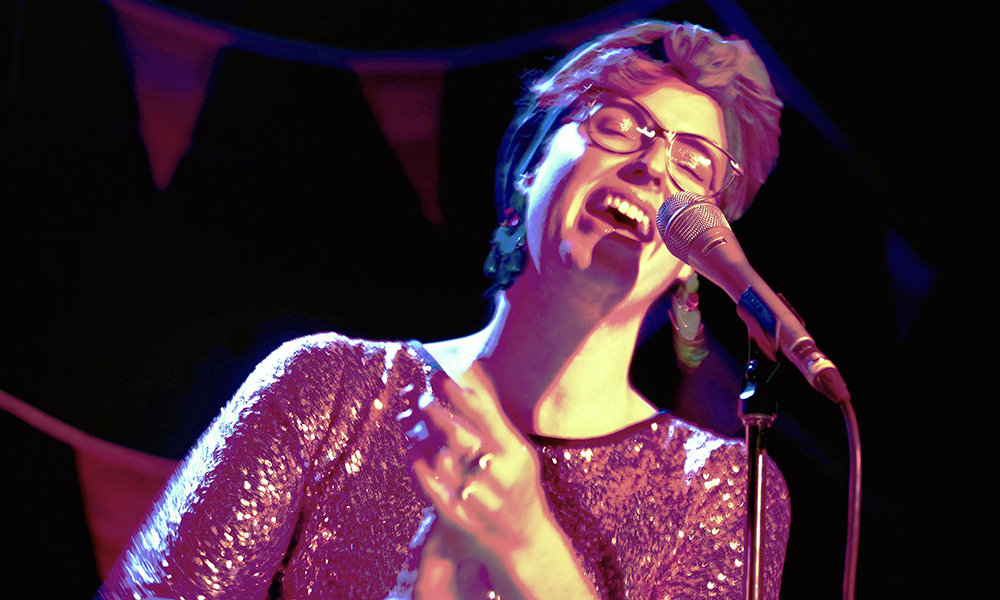
Jessie Gordon
It was fantastic to hear the deeper end of Gordon’s register and the husky tone that she brought to this material. It is a side that doesn’t always feature as strongly in her jazz, swing and folkier shows. But as the hidden figure in her voice, it infuses all of these other styles and adds the darkness and depth that give her music its edge.
You’d think that with this range, Gordon had studied at the Academy of Performing Arts, but she hasn’t. She gained whatever training she has singing in the Kalamunda Youth Swing Band while in high school and spent her university years at UWA studying anthropology, following in her father’s footsteps. Singing, though, has always been her passion. In the winter months, she travels to Europe and performs a circuit with bands in Germany, France, Spain, the UK and Poland. Her Berlin band, Ginger Blues, won the German Blues Award in 2020. You wonder that one year she may not return and Fringe World would lose one of its shining lights.
In the end, Gordon did explain the difference between gospel and spiritual music. Gospel is bedded in Christianity, while spiritual encompasses the profane and non-Christian as well. Hence Amazing Grace is gospel, Down By The Riverside, spiritual.
Jessie Gordon has two shows yet to come in this year’s Fringe World: All the Rage with long-term collaborator Mark Turner and Jessie Gordon’s Approximate Folk with a seven-piece country-jazz-folk band. The latter is her original music. Both shows are running at The Ellington Jazz Club this week from Thursday to Sunday. If you love great singing, try to get along.
IAN LILBURNE
Photos by Alan Holbrook

